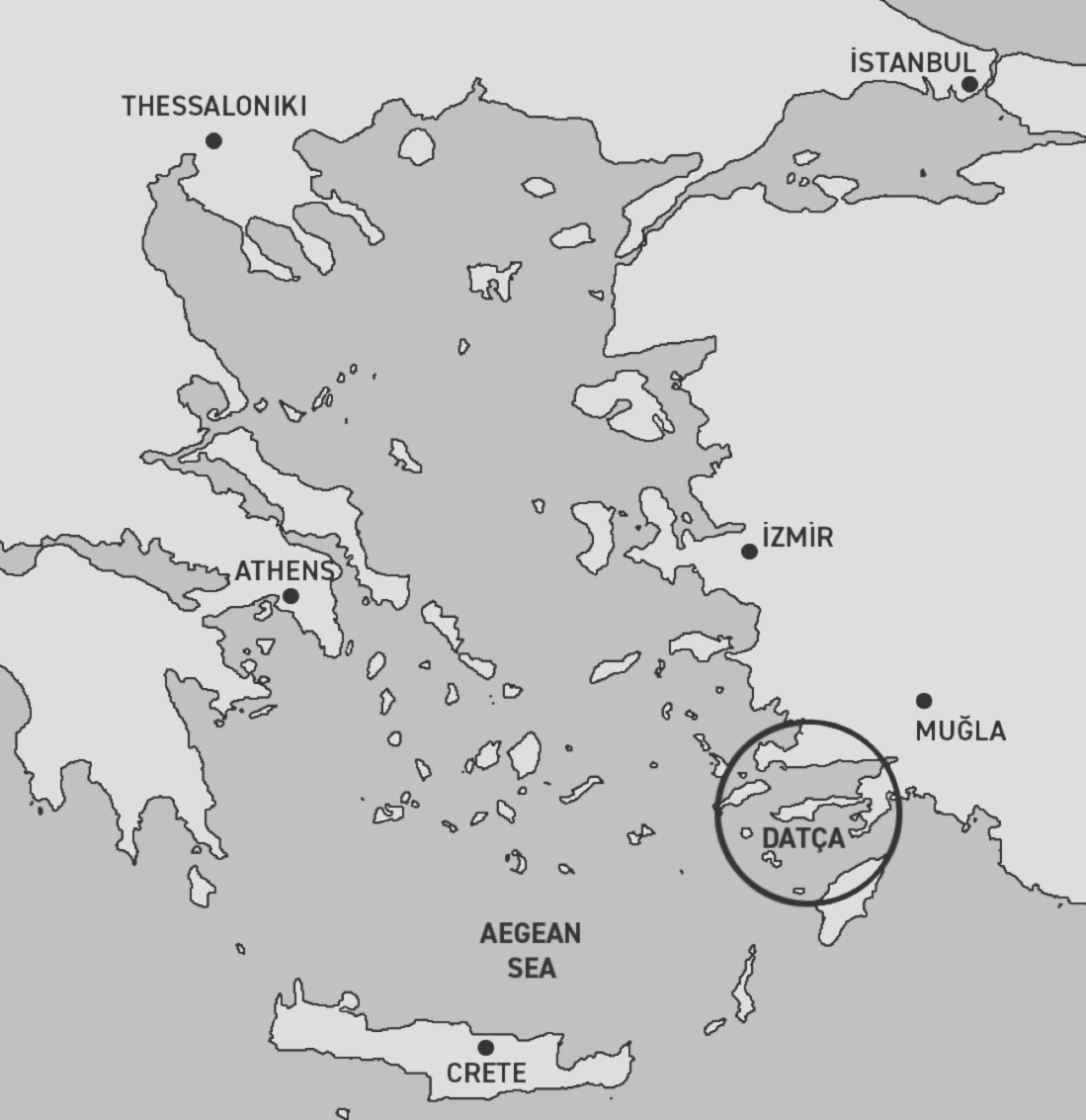
A summer school that aims to explore and reinterpret local practices of production and habitation within a typically Mediterranean cultural geography.
Datça Summer School is an international and interdisciplinary organisation carried out by Istanbul Bilgi University Graduate School of Architecture. It aims to explore and reinterpret local practices of production and habitation in Datça Peninsula (Southwestern Anatolia, Turkey), which has typically Mediterranean geographic and cultural features.
The summer school addresses students from disciplines of architecture, interior design, landscape design and industrial design primarily and can also be of interest for those from social sciences and arts. The topics of study range from local settlement patterns and building techniques to spaces or systems of production, education, tourism and commerce; centered on the idea of understanding and making contemporary interpretations of Mediterranean practices.
Each year’s theme and courses change within this general framework that both aims to provide a unique educational experience and contribute to the development of local practices in Datça Peninsula, through academic research and design ideas.
CONTEXT
Datça Peninsula
Datça preserves a natural and cultural atmosphere that displays a balanced coexistence of historic, traditional and modern settlements within a relatively large and pristine landscape.
Datça peninsula is a province of the city of Muğla (Turkey) located at the southwestern tip of Anatolia, right at the spot where the Aegean Sea meets the Mediterranean. It is a land inhabited since thousands of years and thus houses important archeological and historic sites connected by the Carian route, such as the renowned Knidos that was an important center of commerce and navigation in ancient Greece. Due to its geographic location and isolated character, Datça mostly preserved its natural and cultural atmosphere that displays a balanced coexistence of historic, traditional and modern settlements within a relatively large and pristine landscape.
Similarly, the life style and production patterns in the peninsula are shaped by centuries old habits and are strongly connected to the natural environment. At the same time, Datça is a vivid center of agricultural production and tourism, which is equipped with modern facilities and inhabited by a young population. Among its prevalent areas of production, sericulture, apiculture, almond and olive cultivation, stone and ceramic crafts are noteworthy. For all these reasons mentioned above, the peninsula constitutes an ideal laboratory for the field of Mediterranean Studies in general and place-conscious design studies in particular.

Map: Teğet Architecture
Landscape
The hilly topography of Datça Peninsula is covered by almond and olive trees in the south and pine trees in the rugged north. There are a few large plains that allow agricultural activity. Datça is a land cultivated by man since thousands of years.
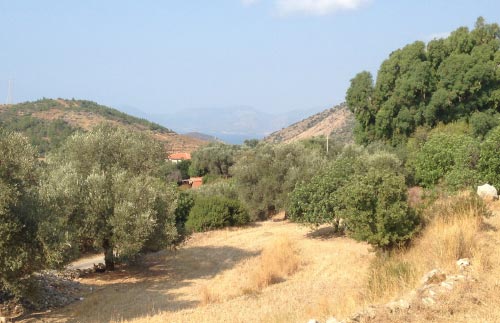
Tourism
Datça has been receiving tourists since 1970s yet the scale and density of the touristic activity has always remained at a reasonable level due to the difficult access to the peninsula. The southern coast of Datça hosts a series of holiday resorts and hotels of modest sizes while the northern coast is almost completely untouched.
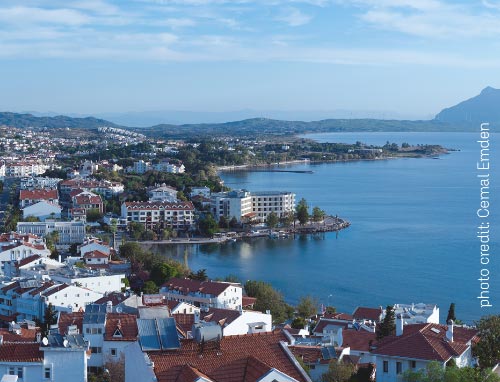
Knidos
The ancient Greek port city of Knidos at the very far end of the peninsula, was an important center of commerce, science and art between 5th century BC and 1st century AD. It was a city famous for its architecture and art works, which included the legendary statue of Aphrodite.
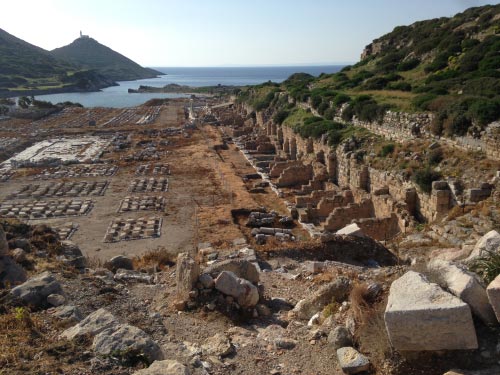
Villages
There are a number of traditional villages in inland Datça, dating back to 18th and 19th centuries. Their fabric is mostly made up of a stock of vernacular stone buildings gradually getting surrounded by more recent ones constructed with reinforced concrete. The villagers still live on agriculture and crafts activities.
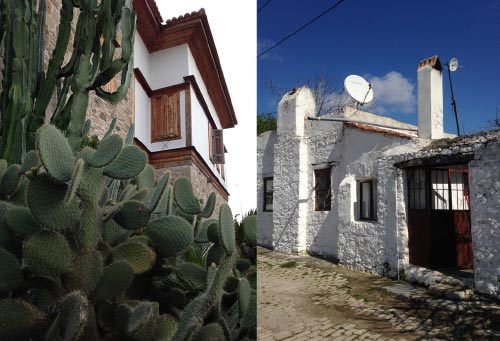
TOPICS
Fields of research and production
Datça’s network of traditional inland villages, the activity of tourism along its southern coast and its cultural landscape that is a combination of wild Mediterranean flora and cultivated fields, offer a variety of topics of design research and study.
The typically Mediterranean cultural geography of Datça offers a number of site-specific topics that can be studied in the summer school, from the perspective of the fields of architecture, landscape design and industrial design. The network of traditional inland villages of Datça is a primary source of topics of study, such as; building crafts related to vernacular stone architecture, contemporary patterns and forms of village development, the surrounding and infiltrating agricultural landscape and local crafts and production types –sericulture, pottery; their processes and spaces. Besides, the activity of coastal tourism that is still at a reasonable scale in the peninsula is another source of research topics for the aforementioned fields. Projections about its sustainable forms of development in relation to local life and production and design ideas for facilities and settlements that would foster this, are within the scope of the summer school studies.
The natural landscape of the peninsula, which is a combination of the wild Mediterranean flora of bushes and pine forests and the cultivated fields of almond and olive trees and small scale agriculture is yet another area of study. The biological, spatial and aesthetic characteristics of this ancient landscape and its relationship to human settlements are discussed and combined with design problems within the framework of the summer school curriculum. Apart from these topics specific to Datça peninsula, the summer school also aims to accommodate more generic research and design topics that are related to the larger Mediterranean context and its contemporary issues.

Architecture
Both vernacular stone architecture of Datça and its modern buildings and settlements that serve contemporary programs offer areas of research for the summer school.
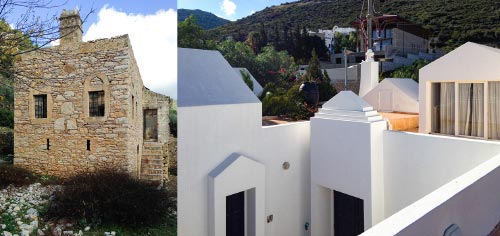
Agriculture
Almond, olive oil, honey and wine are the most well-known products of the peninsula. Thus, processes, endproducts and spaces of agricultural production are among the topics of the summer school.
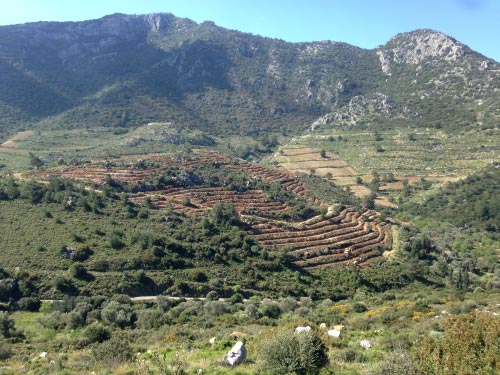
Sericulture
The traditional production of silk in Datça villages awaits proposals from design students, for modernizing its production stages and enhancing the quality of the end-products.
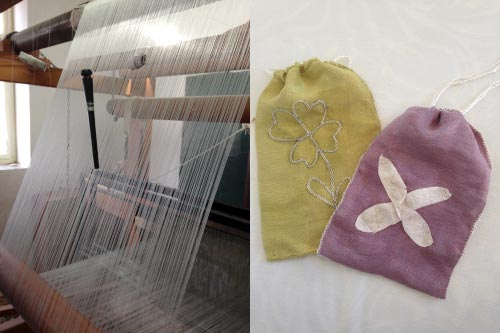
Crafts
History of ceramic crafts in the peninsula date back to ancient times when Knidos amphorae were easily identified with their unique forms. Proposals for reviving this craft and designing necessary workspaces can be of interest to students from various disciplines.
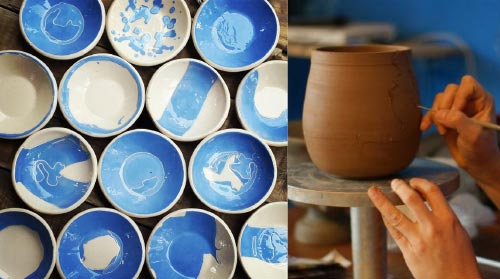
PEOPLE

Burcu Kütükçüoğlu
PhD, Assistant Professor
Istanbul Bilgi University Department of Architecture
Burcu Kütükçüoğlu is responsible for the organization of the summer school. She curates the annual themes and also teaches courses at DSS. Her recent research and publications focus on the relationship of Modernism and the Mediterranean and the various aspects of Mediterranean cultural geography.
Past Tutors
Mehmet Kütükçüoğlu / Teğet Architecture – İstanbul
Mathias Müller / EM2N – Zurich, Berlin
Abdul-Halim Jabr / Unit44 – Beirut
Medine Altıok / Medine Altiok Architektur – Zurich
Stephanie Tunka / Foster + Partners – London
Past Contributors/Lecturers
Can Kaya / Kıyıda Architecture – Datça
Hakan Topal / SUNY – New York
Cemal Emden / CE Architectural Photography – Istanbul
Yıldıray Lise / Nature Conservation Center – Istanbul
Sedef Doğaner / Wentworth Institute of Technology – Boston
Zafer Kızılkaya / Mediterranean Conservation Society – Istanbul




